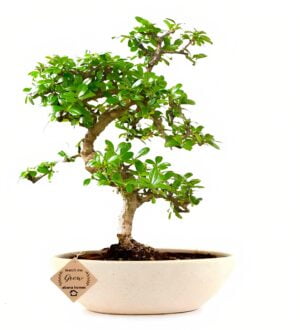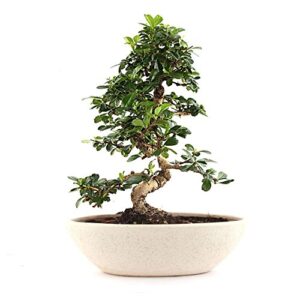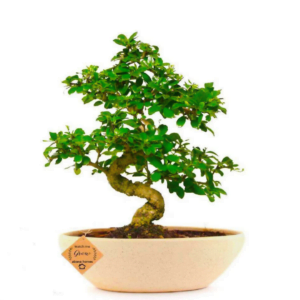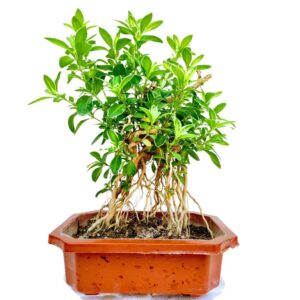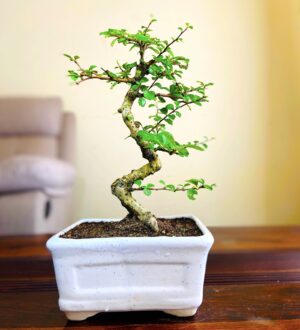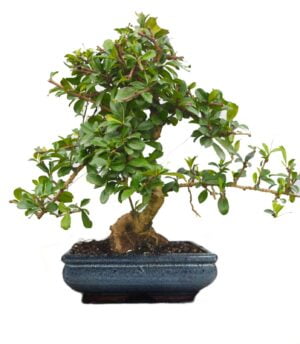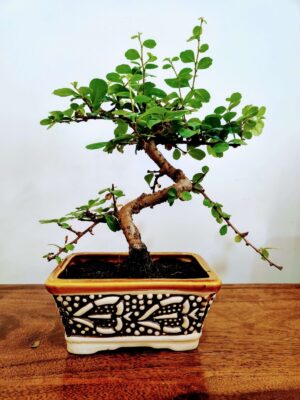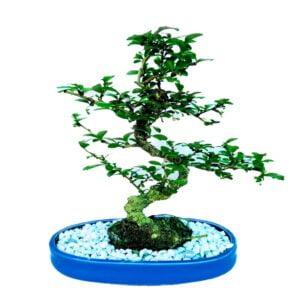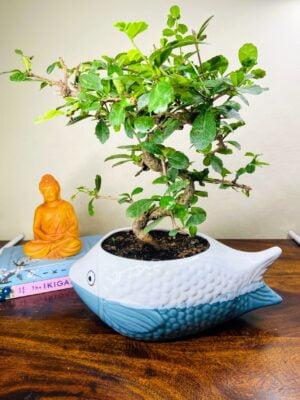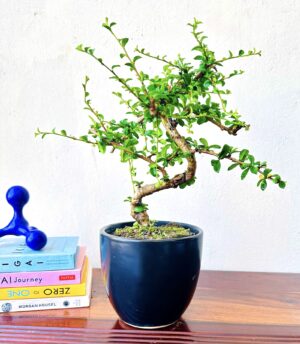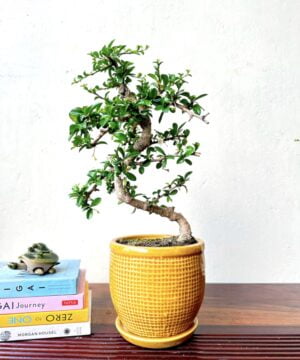Have you ever imagined sitting in your verandah or living hall with a cup of tea and an 8-year-old flowering Bonsai tree accompanying you spreading the fragrance?
In this article, we are going to explore the top 15 MOST stunning Flowering Bonsai Trees that you will want to have in your hall or garden or the entrance of the door.
- Original price was: ₹2,000.00.₹1,399.00Current price is: ₹1,399.00.
- Original price was: ₹2,100.00.₹1,499.00Current price is: ₹1,499.00.
- Original price was: ₹4,600.00.₹3,299.00Current price is: ₹3,299.00.
- Original price was: ₹1,800.00.₹1,299.00Current price is: ₹1,299.00.
- Original price was: ₹2,100.00.₹1,499.00Current price is: ₹1,499.00.
- Original price was: ₹5,500.00.₹3,899.00Current price is: ₹3,899.00.
- Original price was: ₹1,800.00.₹1,299.00Current price is: ₹1,299.00.
- Original price was: ₹2,000.00.₹1,399.00Current price is: ₹1,399.00.
- Original price was: ₹4,900.00.₹3,899.00Current price is: ₹3,899.00.
- Original price was: ₹1,800.00.₹1,299.00Current price is: ₹1,299.00.
- Original price was: ₹1,900.00.₹1,499.00Current price is: ₹1,499.00.
Growing a flowering bonsai tree is a type of art that has become increasingly popular over time. There’s something about the bonsai that instills pride and develops patience and stability in people. What is more satisfying than to nurture and watch for a bonsai tree in its early stages?
The bonsai trees could become the spotlight of your home. Flowering bonsai trees feel like the best boost to floral elements, whether they embellish your yard, gazebo, patio, balcony, living room, or study.
Bonsai online: Bonsai online is a great resource for bonsai enthusiasts. You can find information on bonsai trees, bonsai plants, and bonsai care. There are also online forums where you can connect with other bonsai enthusiasts and share your knowledge and experiences. You can also find online stores that offer a wide variety of bonsai products, including tools and accessories.
Top 15 Flowering Bonsai Trees
We have listed the top 15 flowering bonsai trees that will elevate the look of your home.
1. Bougainvillea Bonsai (Gaganbel)
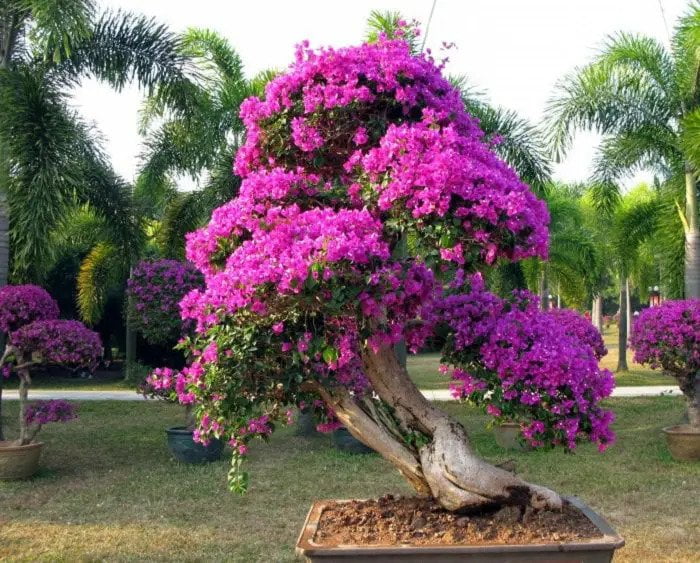
Botanical Name: Bougainvillea glabra
Bougainvillea comes in various colors: pink, purple, orange, yellow, white, and magenta. It blooms at its best from May to July, but it can bloom all year with proper care. Keep the plant somewhere where it will get at least 5-6 hours of direct sunlight per day if you want it to flower successfully. Increased sunlight results in more blossoming, while less light results in fewer or no blooms.
Bougainvillea is flowering bonsai trees that thrive in temperatures ranging from 5 to 28 degrees Celsius. Its vine-like woody branches should be clipped and trained into a bonsai regularly to keep its size in check.
2. Azalea Bonsai
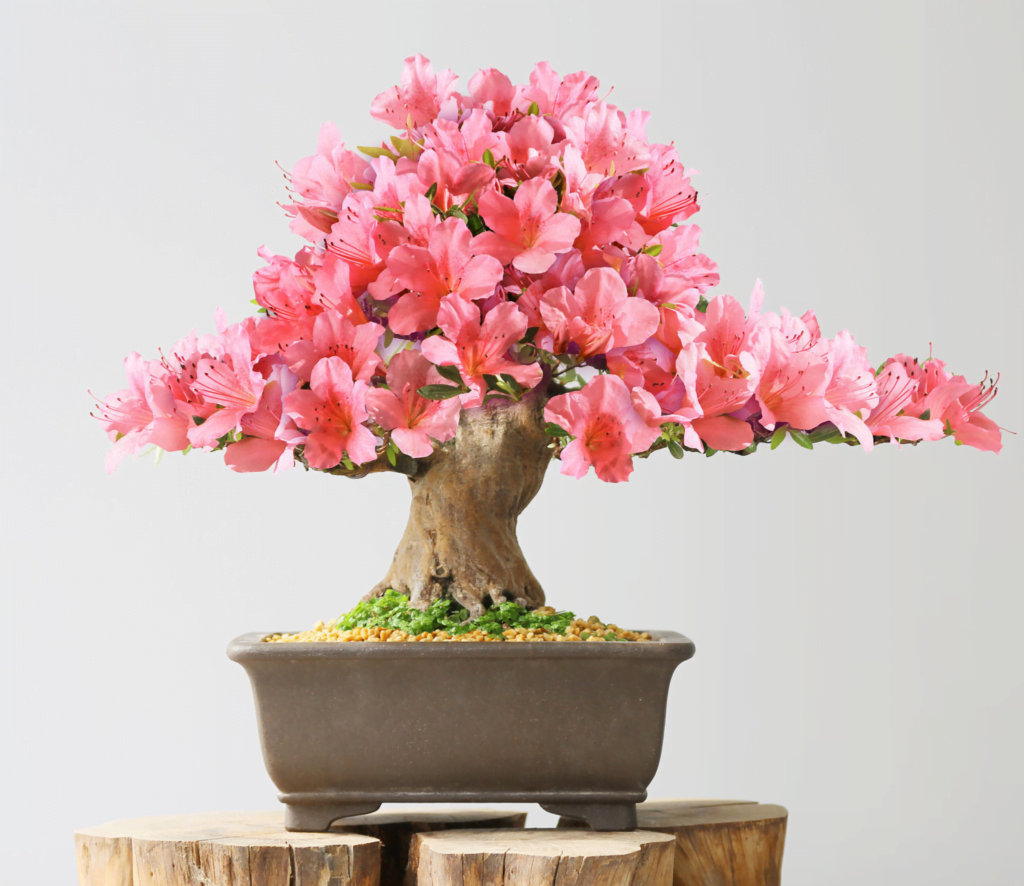
Botanical Name: Rhododendron
The vibrant flowers of the azalea bonsai offer a burst of hues to the landscape, with purple, pink, red, and yellow tones. Azaleas are popular flowering bonsai trees. They also have lovely leaves, so you can keep things interesting even when the weather isn’t cooperating. They’re also simple to mold into small shapes.
Plant these shrubs in the spring, particularly in an excellent, lightly shaded location. Full light can actually burn the leaves, while heavy shadow deprives them of essential oxygen, resulting in poor flowering and growth.
3. Wisteria Bonsai
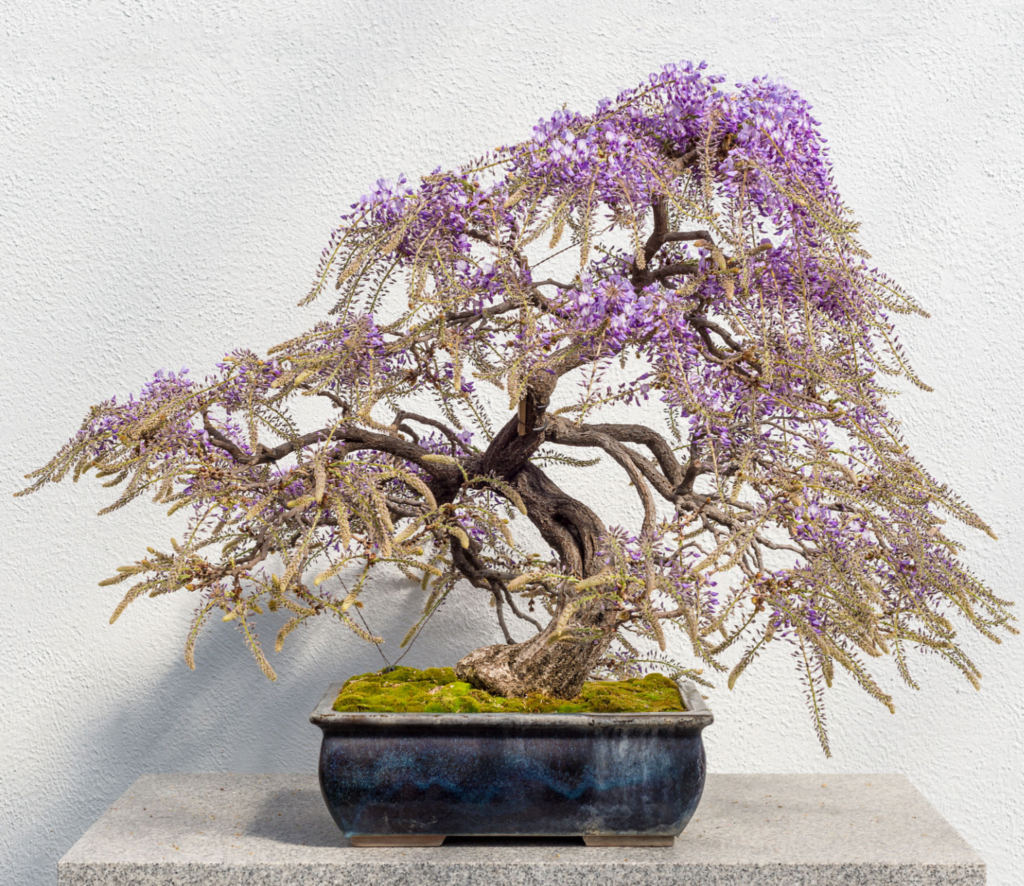
Botanical Name: Wisteria Sinensis
Wisteria Bonsai trees feature vine-like characteristics, although their trunks are thicker. The trees are vigorously growing, with branches that climb and bend, from which the spring blooms will dangle. The flowers are aromatic and come in blue, lavender, or white hues. The leaves are tiny and green in color.
These flowering bonsai trees thrive in either full or partial sunlight. When growing, the wisteria tree requires a lot of water, especially suitable before and during its flowering cycle. Wisteria trees do not bloom until they reach the age of ten.
4. Star Magnolia Bonsai
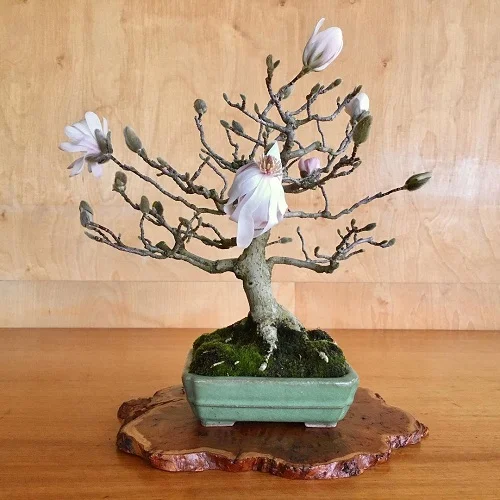
Botanical Name: Magnolia stellata
The main features of star magnolia bonsai include thin twigs, glossy leaves, and magnificent white flowers with a diameter of 3–4 inches.
Its spring blooms are strongly scented. You can keep it in an open window to enjoy the scent throughout the day.
At maturity, the star magnolia reaches a height of 15–20′ and a spread of 10–15′.
This shrub thrives in full sun and some shade, requiring at least 4 hours of direct, unfiltered sunshine every day. Acidic, loamy, wet, sandy, well-drained, and clay soils are ideal for the star magnolia.
5. West Indian Jasmine Bonsai
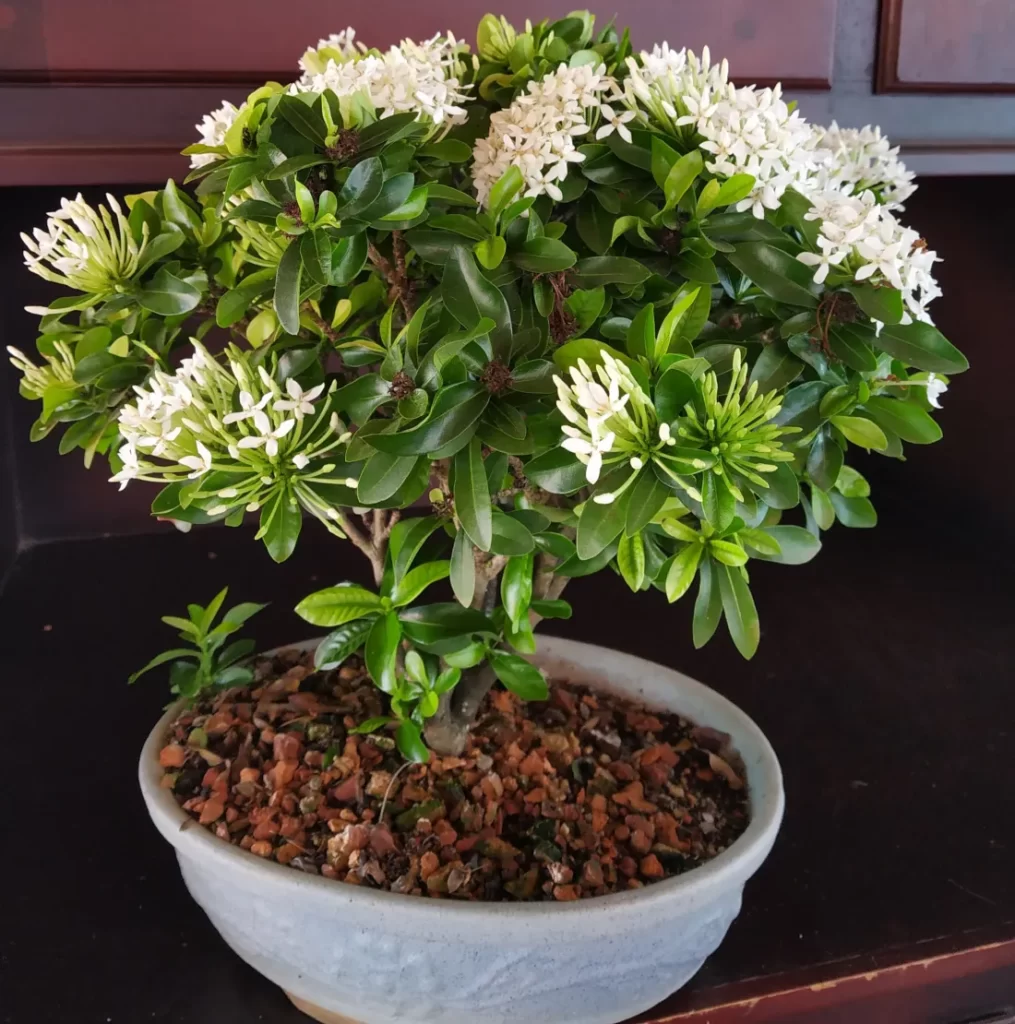
Botanical Name: Ixora
The West Indian Jasmine, commonly known as Ixora or Jungle Geranium, is a tropical and subtropical evergreen tree and shrubs. These flowering bonsai trees are known for their brilliantly colored flowers, which bloom all year in warm areas. It produces flowers in various colors, including red, orange, pink, and yellow. It’s an easy-to-care-for plant. It can attain a height of 12 feet. It grows nicely on both loam and sand.
6. Desert Rose Bonsai
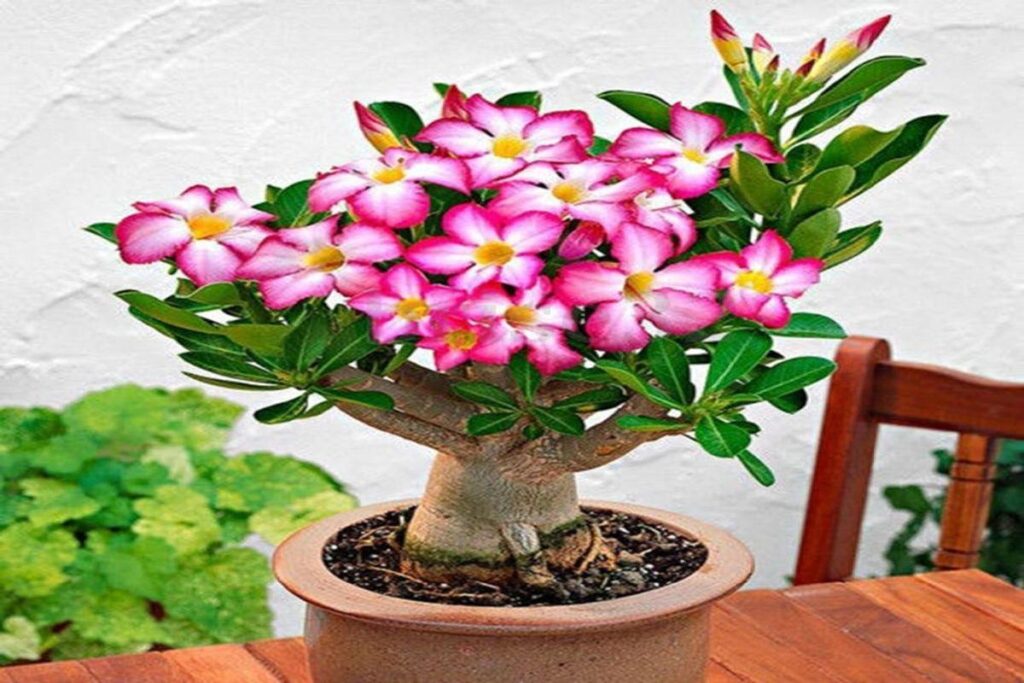
Botanical Name: Adenium obesum
It sticks out from the crowd, making it ideal for flowering bonsai trees enthusiasts looking for lush tiny trees. It can reach five feet, making an excellent bonsai specimen when cultivated in a small container.
The bulbous base of the desert rose is used to store water during periods of drought. On the other hand, its thick leaves complement the view of gorgeous pink-red blossoms. It must be exposed to direct sunshine. When grown in full sun, the flowering time length is a year. These flowering bonsai trees can live for 30 years or more (grows slowly).
7. Japanese Beautyberry Bonsai
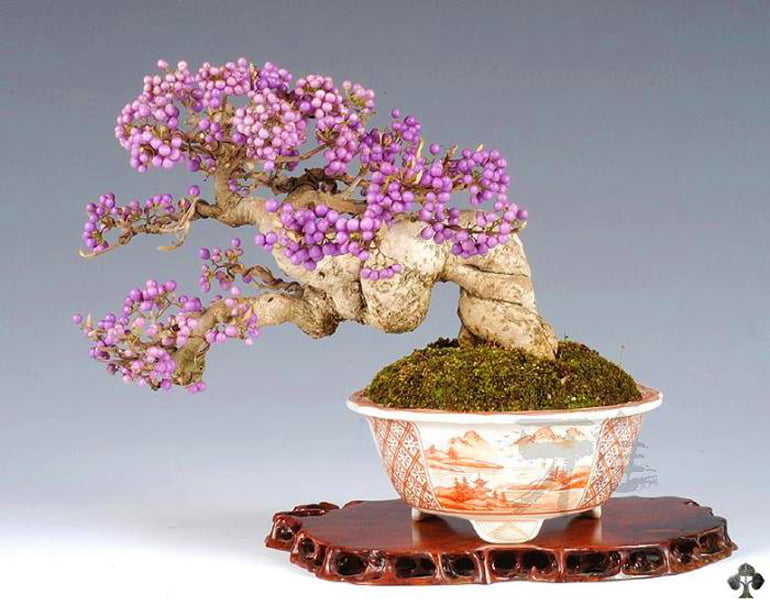
Botanical Name: Callicarpa japonica
The plant grows quickly and requires frequent pruning in the spring and summer to keep its size under control. The tiny blossom changes color from white to purple. Late in the summer, they are followed by brilliant, glossy violet clusters to purple fruits that may continue after the leaves have dropped and stand out beautifully. It grows quickly and has a bushy, spherical form, reaching up to 4-6 feet tall and broad (120-180 cm).
These flowering bonsai trees prefer full sun to partial shade and grow well in average, medium moisture, well-drained soils.
8. Sasanqua Camellia Bonsai
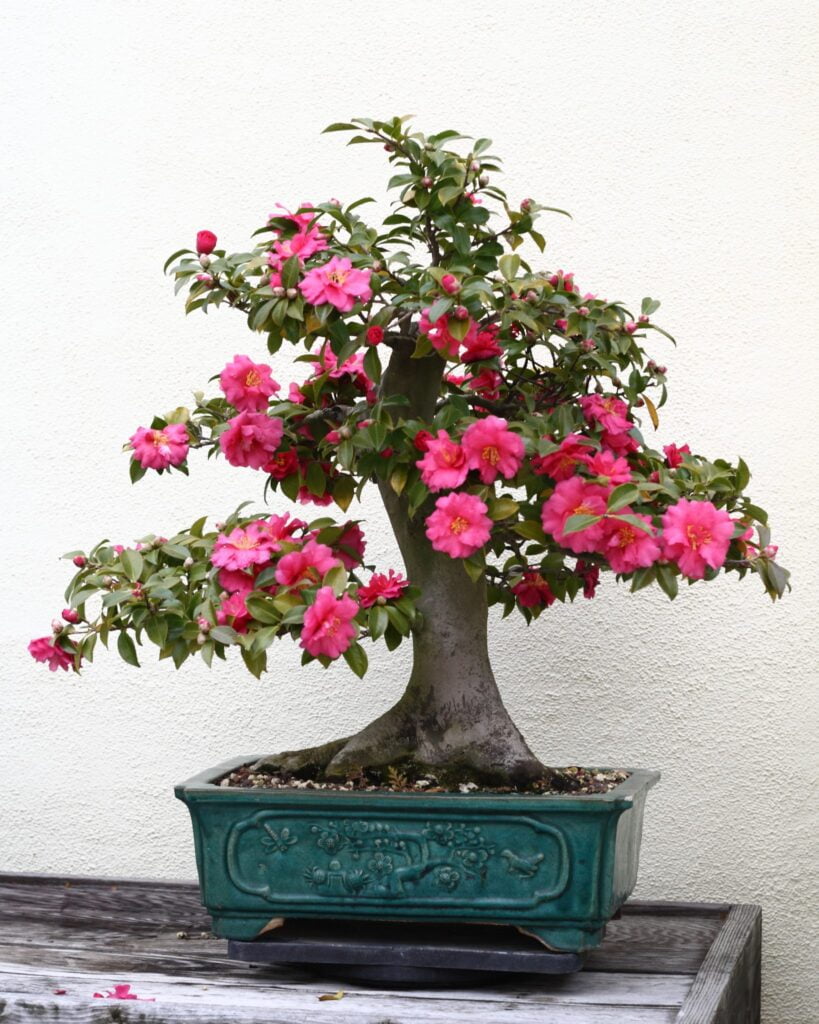
Botanical Name: Camellia sasanqua
This bonsai is ideal for small places because of its tiny stature and slow growth. It has semi-double crimson blooms that offer the winter landscape a splash of color. This attractive evergreen adds a splash of color with gorgeous deep pink blossoms that stand out against the season’s traditional reds, oranges, and yellows. This shrub grows slowly, with less than 12 inches annual height increments.
This shrub thrives in full sun and some shade, requiring at least 4 hours of direct, unfiltered sunshine every day. Acidic, loamy, wet, rich, sandy, silty loam, and well-drained soils are ideal for the Sasanqua camellia.
9. Fukien Tea Tree Bonsai
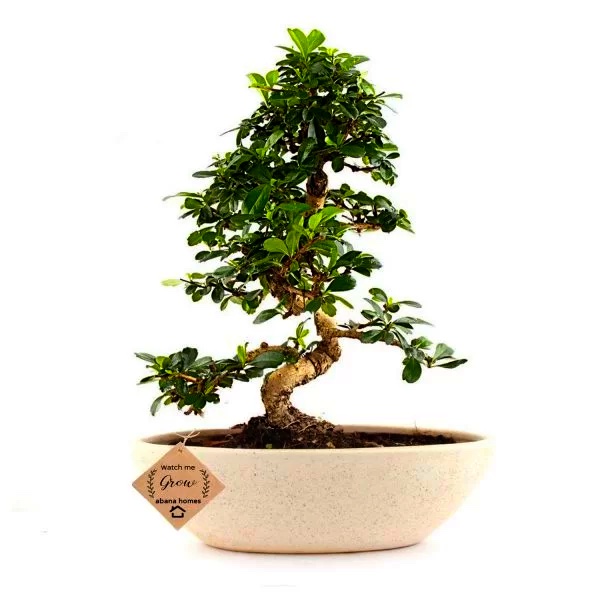
Botanical Name: Carmona retusa
Because of its lobed leaves and sturdy trunk, this plant is ideal for bonsai. It remains compact and grows slowly. It is recognized by its small white flowers that bloom virtually all year. Small red, black, or green berries like miniature rosehips follow the blooms. The leaves are delicate and shiny, with a deep green color.
If you’re growing the plant indoors, make sure it’s in a bright spot. It prefers to be warm and humid. These flowering bonsai trees like moist, well-drained soil to thrive.
10. Golden Shower Tree Bonsai
Botanical Name: Cassia fistula
Kerala’s state flower is the golden shower, and its bonsai form is greatly sought after in South India.
The Golden Shower tree can withstand full sun. These are evergreen flowering bonsai trees. Golden Shower Tree has large clusters of brilliant yellow blossoms that cover the somewhat drooping branches in the summer.
11. Prunus Mume Bonsai (Japanese Apricot)
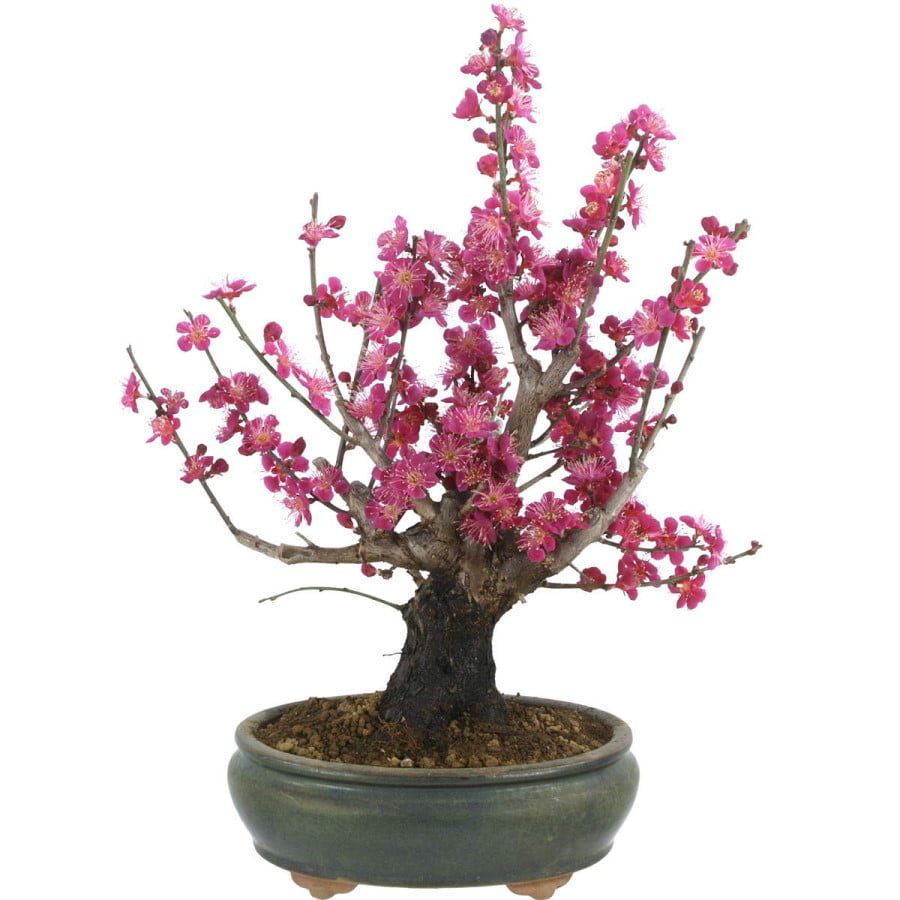
It continuously blooms in white, pink, and red colors on branches throughout January and February. It has a habit and appearance comparable to some of the smaller flowering cherries that bloom later in the season.
12. Apple Bonsai Tree
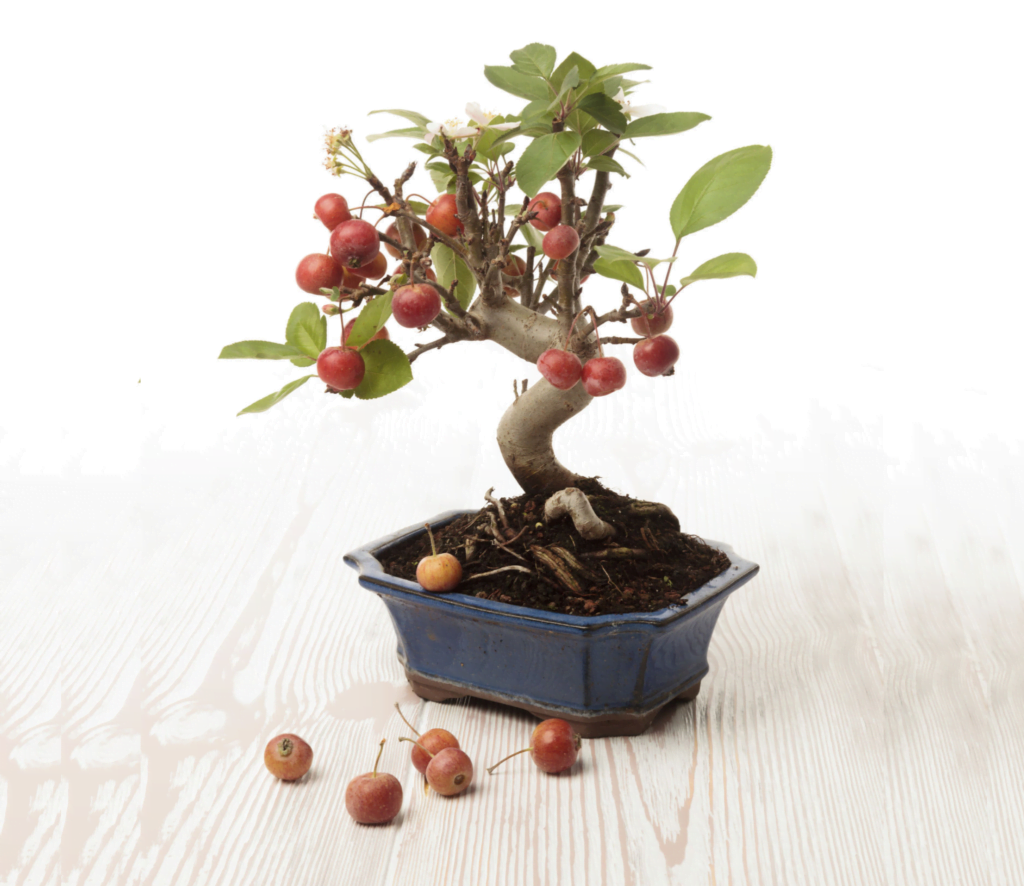
Apple trees are among the most commonly grown flowering bonsai trees. While you may cultivate almost any type of apple tree in the bonsai style, tropical varieties like pitch apple and monkey apple are the best (Clusia rosea and Annona glabra, respectively).
Apple bonsai blooms with beautiful white and pink flowers and yields coins-sized fruits. They’re so tiny, yet not generally edible, but you’ll enjoy admiring the dark green leaves and exquisite blossoms of these flowering bonsai trees nevertheless.
13. Hibiscus Bonsai Tree
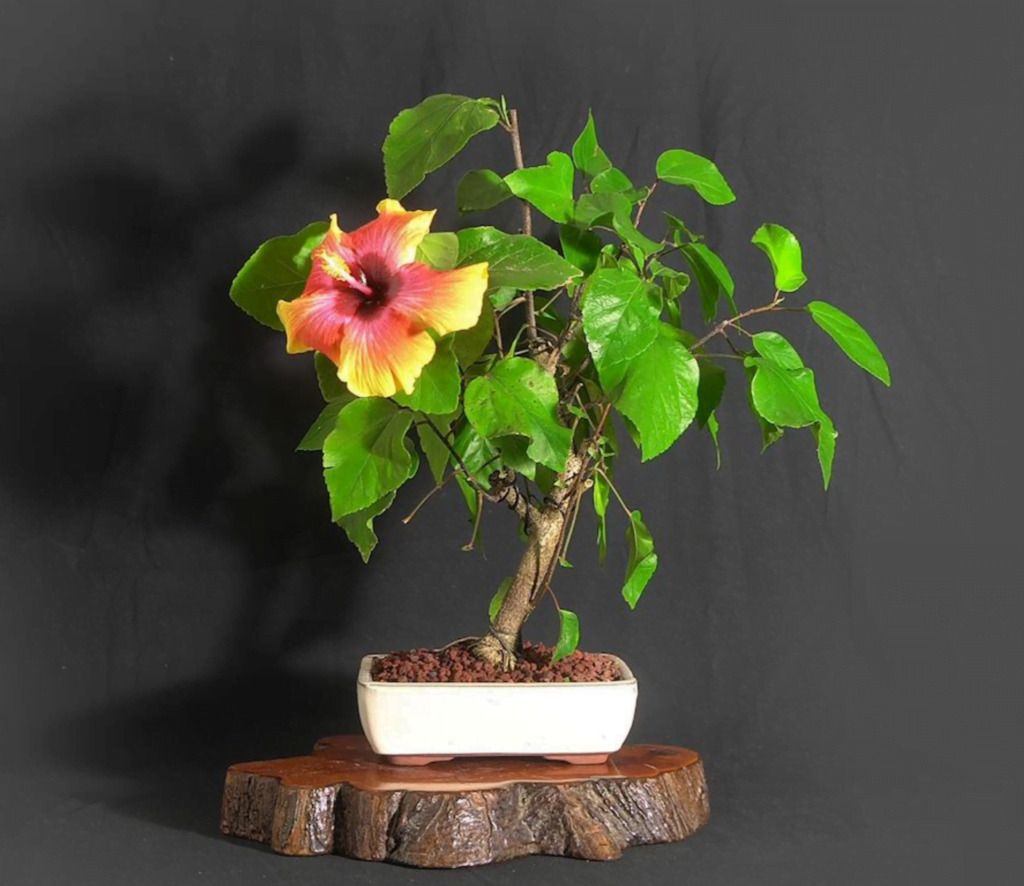
Hibiscus is a Gudhal plant, and very common in India. Hibiscus plants are unable to withstand extreme cold or freezing temperatures. When planted indoors in any environment, a hibiscus bonsai tree, or Hibiscus rosa-Sinensis, is likely to enchant.
The flowers are enormous and spectacular, and the different hibiscus types provide a wide range of blossom colors to pick from, including white, yellow, red, and purple. However, you’ll need to keep an eye on the enormous flowers and leaves to ensure they don’t become overgrown.
The large, vibrant blossoms contrast with the bonsai plant’s glossy green foliage, contrasting with the light-colored trunk and branches. Despite this, the overall effect is complimentary.
These flowering bonsai trees may grow in the sun or the shade. Despite their hardiness, the plants require some winter protection. Water your hibiscus bonsai plants daily.
14. Powder Puff Bonsai
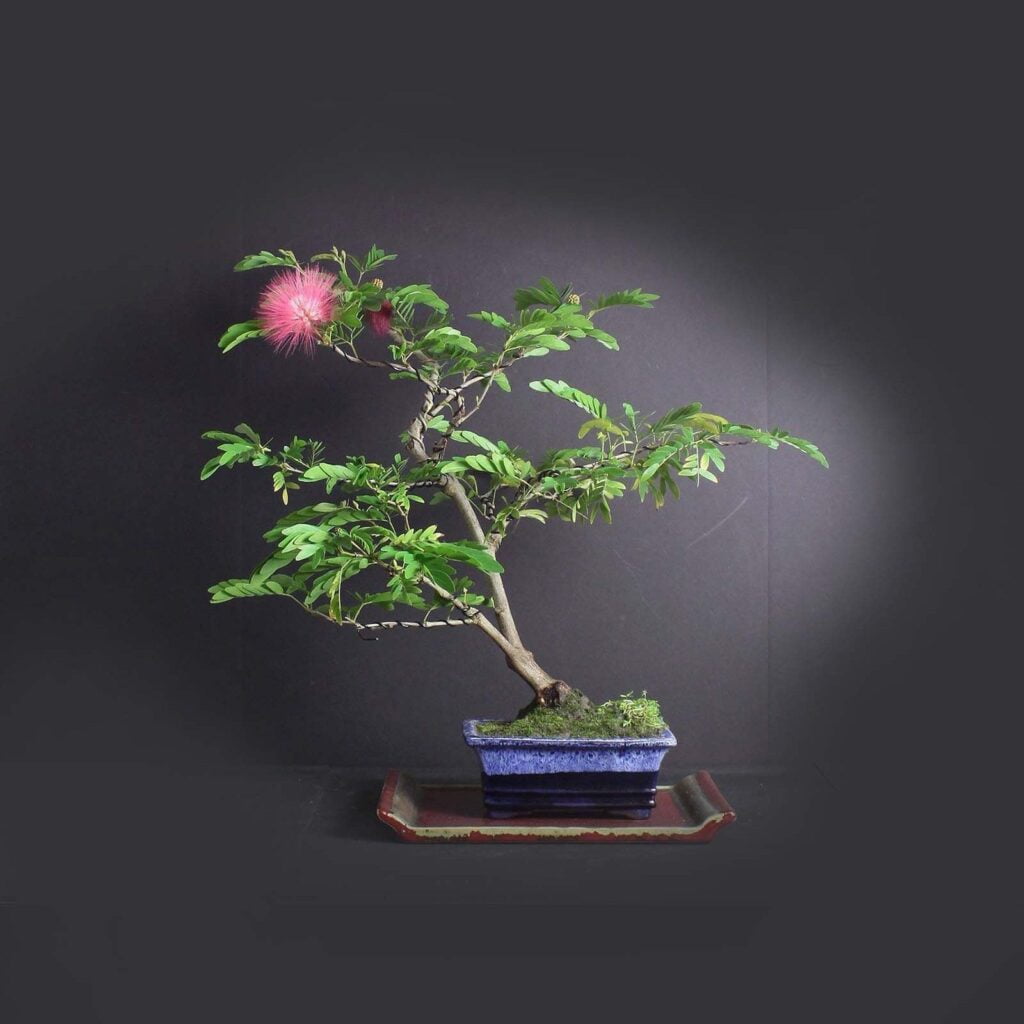
Calliandra, sometimes known as the powder puff tree, is a rare genus of trees. The dwarf powderpuff grows swiftly, reaching a height of six feet and a spread of three feet.
The red or pink powder puff trees produce spectacular blossoms with numerous stamens in the winter. The pink bloom has the impression of a fuzzy puffball.
Pinkish-red flowers are the most common, but white variants are also available. The little tree has dark green complex leaves corresponding to a mimosa tree, with five to ten duos of leaves per stem. The sturdy trunk and vivid green leaves will also appeal to you.
15. Cape Honeysuckle Bonsai
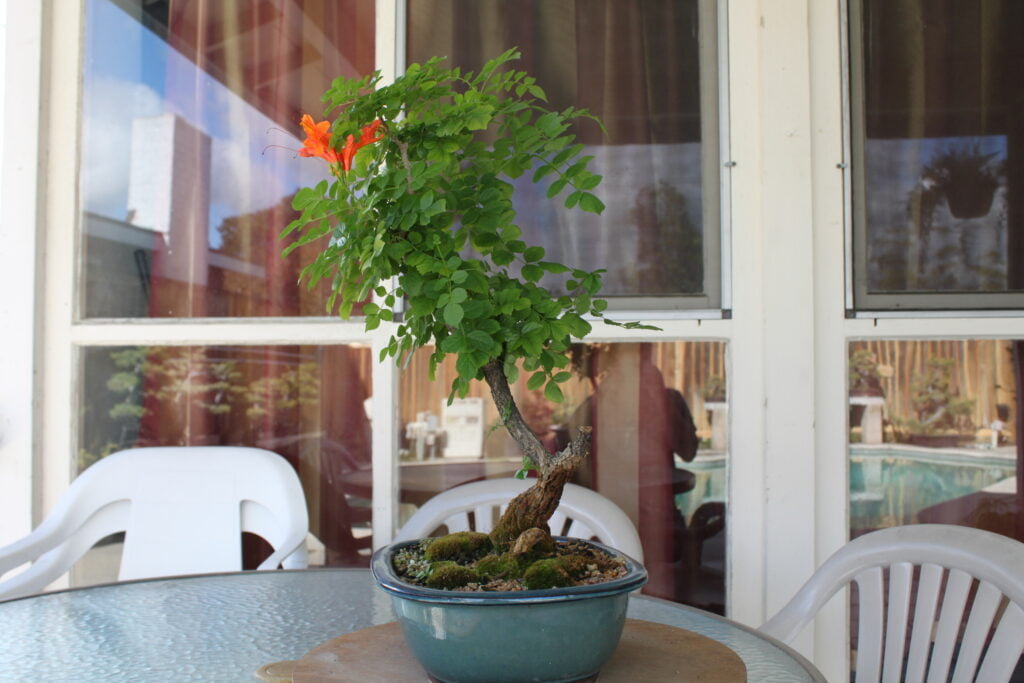
When cultivated in optimal conditions, these flowering bonsai trees are virtually an evergreen plant, but they will lose their leaves in locations with cold winters. The emerald, gleaming leaves feature saw-blade-like edges. The plant’s blossoms are similar to honeysuckle, hence its name. However, it is not true honeysuckle. The plant’s vividly orange-colored flowers, pod-like fruit, and vine-like structure are notable traits. It grows best in direct sunlight.
Conclusion
We have discussed the top 15 indoor beauties for your house. A bonsai plant is not technically a dwarf plant, but it shares many traits as a full-sized blooming plant. Grow these flowering bonsai trees to give your home a natural and elegant look.
Related Articles
- 10 Amazing Rakhi Gifts for Your Sister: Ideas and Inspiration
- 10 Best Indoor Plants for Dark Rooms
- 10 Best Liquid Fertilizer for Indoor Plants
- 10 Best Plants for Restaurants That Will Enhance Your Restaurant’s Atmosphere
- 10 Best Small Plants for Balcony in India
- 10 Best Soil for Indoor Plants 2023 | Potting Soil For Indoor Plants No Bugs


